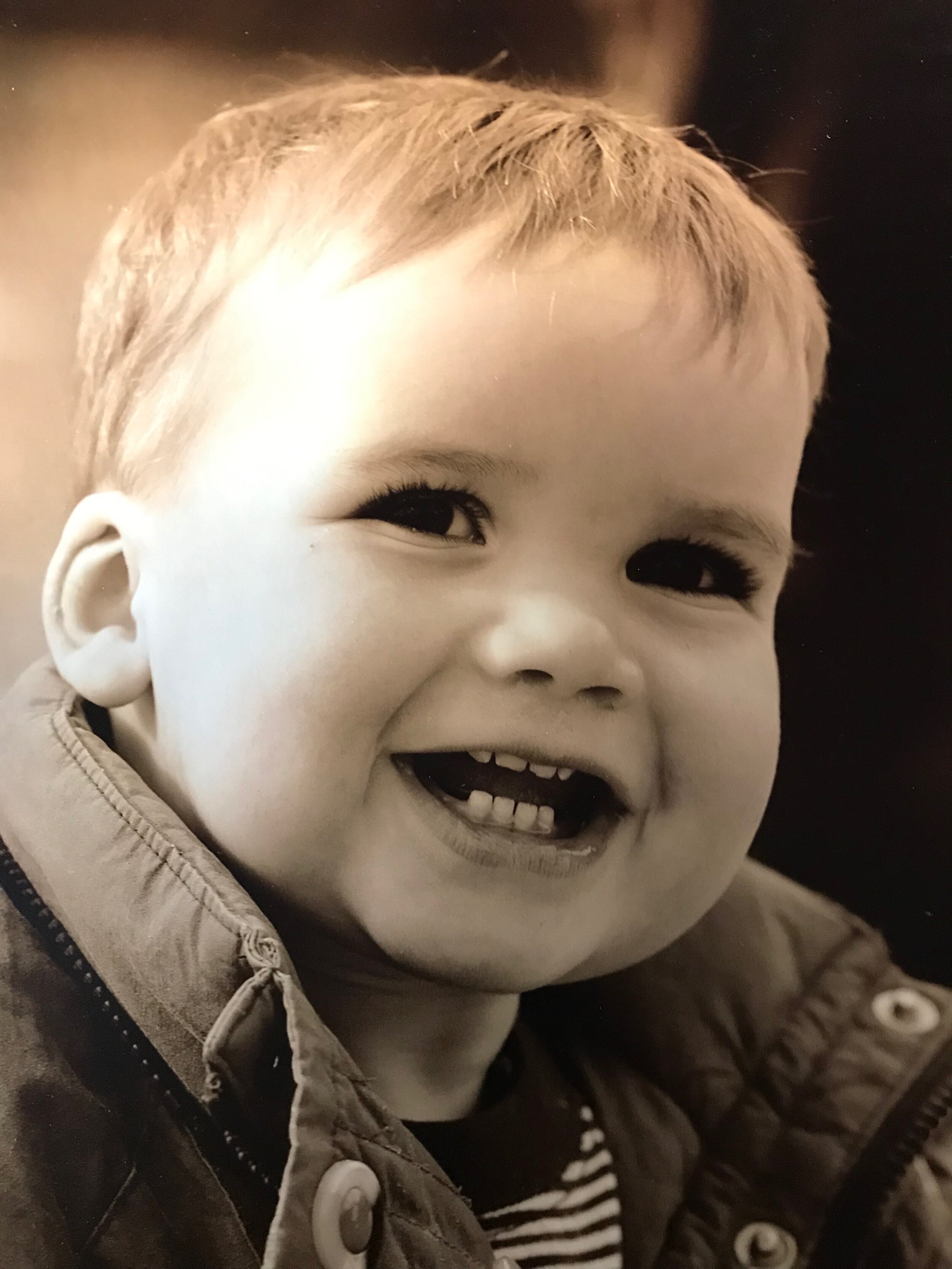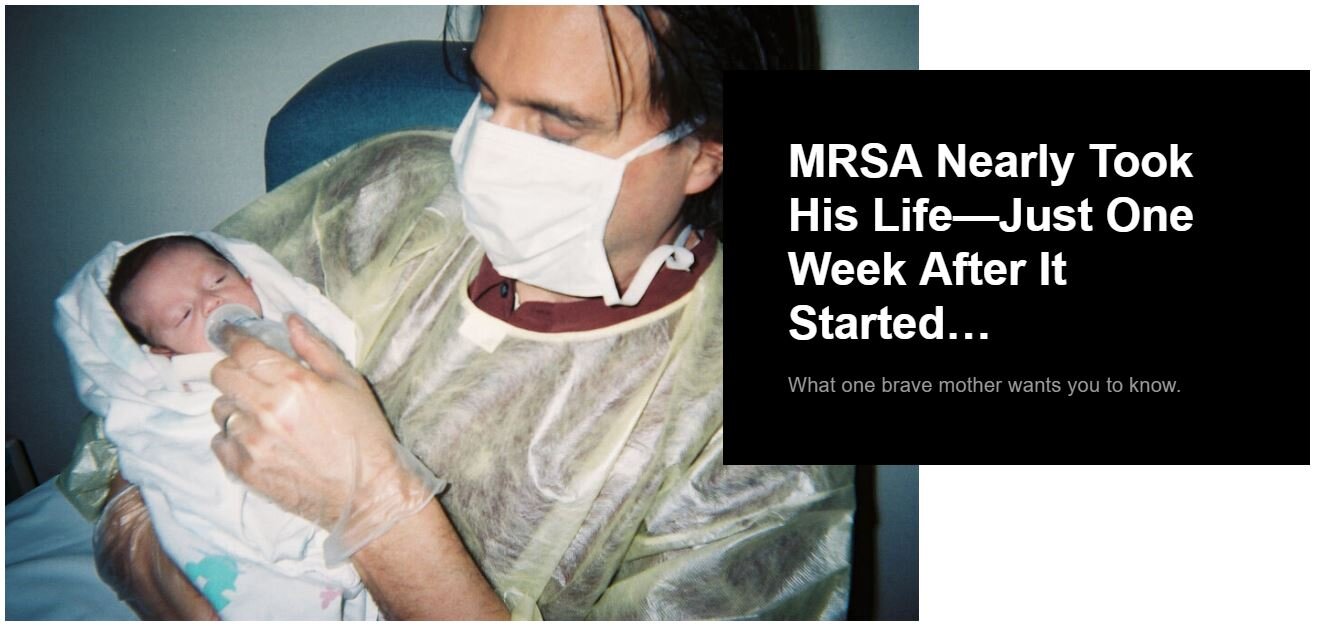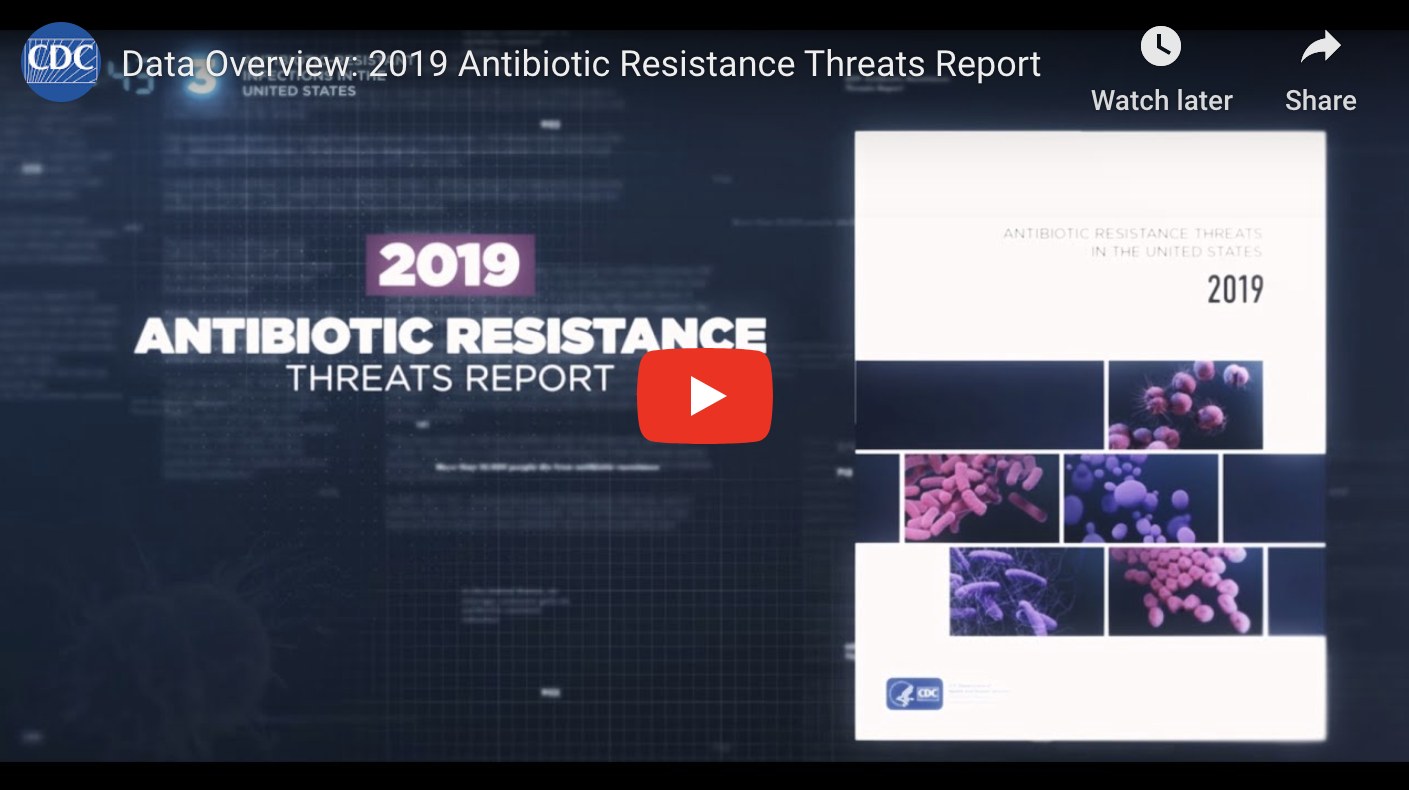If not now, when?
Support the Small World Initiative today and become the real-life superheroes we need to support impactful STEM programs and change the world! To learn more and take action, please click here.
If not us, who?
We need all hands on deck and unique solutions to tackle the antibiotic crisis. If you are an educator and would like to engage students at your school in the hunt to find new drugs to fight infectious diseases, please click here.
What’s the BIG PROBLEM??? Watch to Find Out!
Do Something About Antibiotics Challenge™
Antibiotics aren’t always the answer. Antibiotics treat certain infections caused by bacteria. They do not treat viruses like the cold or flu. When they are not needed, antibiotics won't help you, and the side effects could still hurt you. Be Antibiotics Aware. For more information, please visit cdc.gov/antibiotic-use.
This November, for the seventh year, we are teaming up with the Centers for Disease Control & Prevention's (CDC), the National Institutes of Health (NIH), the Sociedad Española de Microbiología, and other partners to challenge students to do something about superbugs and the growing global antibiotic crisis. The timing coincides with the CDC's Annual Antibiotic Awareness Week and global activities from the World Health Organization.
The global outbreak of COVID-19 has painfully exposed our unpreparedness and the devastating impact infectious diseases can have on our health, education, and economy as well as the very fabric of our society. While the challenges seem insurmountable, we firmly believe that leveraging the collective efforts of thousands of students around the world can help solve the greatest public health emergencies of our time.
We are calling on all current and former Small World Initiative students to enter our Challenge to make a difference and win cool prizes! For more information about the Challenge, please click here. If you represent an organization and would like to get involved in a future Challenge, please contact us.
Check out the creative and impactful ways students around the world are taking action on the growing global antibiotic crisis.
ANTIBIOTIC RESISTANCE WITH MONTY THE MONSTER. TEAM: HANNAH IWASZKIEWICZ, BRIGID KING, AND LYDIA RIFKIND; THE ETHEL WALKER SCHOOL.
ANTIBIOTIC AWARENESS. TEAM: BRIANNA DORATT, CINTIA QUAN KIU, ANTONY NGUYEN, DAVID LOPEZ, MAH NOOR, CHRISTIAN LE, AND NEGAR ZAMANI RAD; UNIVERSITY OF CALIFORNIA, IRVINE; SWIPI: DR. JULIA MASSIMELLI SEWALL.
THE ANTIBIOTIC RESISTANCE CRISIS. TEAM: JUDE BANIHANI, SARA DANAIE, AND NICOLAS DO; UNIVERSITY OF CALIFORNIA, IRVINE; SWIPI: DR. JULIA MASSIMELLI SEWALL.
#ANTIBIÓTICOS: 10 CONSEJOS PARA USARLOS BIEN Y EVITAR LA RESISTENCIA BACTERIANA. EQUIPO: SWI@CEU, UNIVERSIDAD CARDENAL HERRERA.
TEAM: YURIY MAKSYMYUK, SARA ABBOUD, JILL OATES, TARA ALLEYASIN, CATHERINE LAI, BEOUNG LEE, JASMINE HUYNH, WAYNE HUYNH, MARC MORADA, & ALFONSO ESQUIVEL; UNIVERSITY OF CALIFORNIA, IRVINE; SWIPI: DR. JULIA MASSIMELLI.
TEAM: MELISSA DURAN, KARINA RAMIREZ, CARLA TORRES, & NINA ARUTYUNYAN; NATIONAL UNIVERSITY; SWIPI: DR. ANA MARIA BARRAL.
TEAM: BEATRIZ MARTIN HERREROS & ROBERTO MONLLOR GUERRA; UNIVERSITY OF VALENCIA; SWIPI: DRS. SERGI MAICAS & ELENA G. BIOSCA.
TEAM: JOSHUA BERGERON, MARK BURCH, LONG NGUYEN, & STEVE FAGAN; JOHNSON COUNTY COMMUNITY COLLEGE; SWIPI: DR. HEATHER SEITZ.
Small World Initiative Class of 2021
Class of 2021
We are thrilled to welcome our Class of 2021 Small World Initiative Partner Instructors! This summer, 46 undergraduate and high school educators from across the United States and Canada completed our rigorous training.
Press Release: From the Small World Initiative Classroom to the International Space Station: NASA Selects UNH at Manchester Student Experiment to Launch into Space
A group of University of New Hampshire at Manchester student researchers started their experiment in the Small World Initiative classroom under Dr. Sue Cooke. Now, their experiment is going to space!
According to Dr. Kyle MacLea, UNH at Manchester’s Program Coordinator for Biosciences and Biotechnology, “The synergy between Team Cooke at UNHM, the Small World Initiative, outside collaborators, and the NASA scientists that they are now working with to bring this project to completion—and launch into space!—is palpable. ... This experiment shows the power of citizen science conducted by undergraduates to address a real societal problem.”
Please click here to read about how Team Cooke ended up working with NASA and ichip inventor Dr. Slava Epstein.
Superbugs – Real People, Real Stories
Just five years ago, the World Health Organization warned, “A post-antibiotic era—in which common infections and minor injuries can kill—far from being an apocalyptic fantasy, is a very real possibility for the 21st century.” This month, the Centers for Disease Control and Prevention declared that it is already here.
To do our part in improving public health, we are focused on spreading awareness about the severity of the growing global antibiotic crisis, what people can to protect themselves and their loved ones from antibiotic-resistant infections (commonly referred to as “superbugs”), and how to properly use antibiotics. The facts and statistics hide the true, personal, and hearth-wrenching stories of antibiotic resistance.
That is why we are sharing the powerful stories of people directly impacted by antibiotic-resistant infections. These stories recount the journeys of patients and their families and their experience of enormous fear, heartbreaking loss, and extraordinary triumph. We also hope they engender a strong sense of urgency and compel readers to act. While some people are more at risk, absolutely anyone can get an antibiotic-resistant infection. A simple scraped knee or common infection can suddenly and without warning turn into a major life-threatening crisis for an otherwise healthy individual. While this is an increasing threat as our existing drugs fail to protect us, there are things that we can do to slow down and even solve this public health emergency. It is time to hear from people who understand the true consequences of antibiotic resistance and want you to learn before it is too late.
Saving Antibiotics: One Mother’s Journey
In our first story, one mom fights to save lives. Everly Macario’s son Simon was a happy, healthy baby until, at around 18-months old, he came down with a fever. She took him to the hospital in the evening, and by the following morning, he was gone. Although she holds a PhD in public health from Harvard, she had never heard of the superbug MRSA until the very moment the autopsy results came back. She had not realized the extent of the antibiotic-resistance problem. Everly wants to make the term MRSA as familiar a household term as AIDS and hopes that Simon’s life and death will serve as a catalyst for major and positive change.
“I want people to wake up and realize that this isn’t something that just happens to other people.”
Saving Antibiotics: One Mother’s Journey
“Just A Bump”
In our second installment of Superbugs – Real People, Real Stories, Dallas mom Kathryn Librizzi recounts harrowing battle to save her son Andrew’s life. Andrew was born healthy but early and placed in the newborn intensive care unit (NICU). Six days later, he started showing symptoms that doctors later discovered was the superbug MRSA and believed entered through the IV placed in his foot just after being born. Even though doctors knew that other newborns in the NICU had been infected with MRSA, they never suspected that baby Andrew’s symptoms indicated MRSA and were quick to dismiss the early warning signs. Kathryn had never heard about MRSA and had no idea that other babies in the hospital had been infected. Kathryn is sharing her powerful story to warn others so that they can recognize the signs of MRSA sooner.
Real Housewives of Dallas Star LeeAnne Locken Speaks Out to Save Lives
On the screen, Real Housewives of Dallas charity queen LeeAnne Locken is known for opening up about her past struggles, celebrating her triumphs, and being deeply committed to charity work. While she recently welcomed viewers into her wedding to longtime love Rich Emberlin, this week, she is bravely revisiting a terrifying medical journey with a bacterial infection that was eating her alive and could have taken her life during filming. LeeAnne is lending her powerful voice to shed light on the fundamental importance of antibiotics to save lives.
““This disease almost killed me.””
About Superbugs and the Growing Global Antibiotic Crisis
“Antimicrobial resistance is not a future threat looming on the horizon. It is here, right now, and the consequences are devastating.”
We have entered the post-antibiotic era, when a scraped knee or common infection may prove deadly for an otherwise healthy individual. Existing antibiotics are losing efficacy due to widespread antibiotic-resistant "superbugs". If no significant action is taken by 2050, superbugs will kill more people than cancer and diabetes combined and result in 300 million premature deaths (Review on AMR). Although the United Nations calls this "the greatest and most urgent global risk," pharmaceutical companies have shifted away from developing new antibiotics in favor of more lucrative ventures. Formulated at Yale University, the Small World Initiative® (SWI) is addressing this worldwide health threat through innovative and inspiring science curriculum. SWI centers around an introductory biology course in which students perform hands-on field and laboratory research on soil samples in the hunt for new antibiotics. This is particularly relevant as over two thirds of antibiotics come from soil bacteria or fungi.
Since its inception, SWI has grown rapidly to include more than 300 schools across 45 US states and 15 countries. Read our press release from SWI President and CEO Erika Kurt on how students from around the world are joining forces to tackle the antibiotic crisis through SWI's novel "crowdsourcing" approach. If you are interested in sponsoring our important work, please Contact Us. To learn more about our work and the antibiotic crisis, please click here.
#ShutDownSTEM Announcement & Call to Action
As the country focuses on discriminatory police practices and calls for change, our community knows that STEM fields are not immune to discrimination and that Black lives matter. We each have the ability to be powerful forces for change. To quote Martin Luther King Jr., “The time is always right to do what’s right.” As we add our voice to the cause, it’s time to seize this moment in history to strive to understand one another and take real action to affect positive change. We encourage everyone to observe #ShutDownSTEM and make a lifelong commitment to eradicating anti-Black racism in academia and STEM. As Eleanor Roosevelt declared, “We must do the things we think we cannot do!” If you have recommendations on how we can promote positive change, please let us know.
2019 Report: Antibiotic Resistant Threats in the United States
In 2019, the CDC released its second Antibiotic Resistance Threats Report. While progress has been made, the report concluded that the threat continues, and more action is needed. The report shows that antibiotic-resistant bacteria and fungi cause more than 2.8 million infections and 35,000 deaths in the United States each year.
On November 13, 2019, the Centers for Disease Control and Prevention (CDC) released its updated Antibiotic Resistance Threats in the United States Report. According to new data, antibiotic-resistant bacteria and fungi cause more than 2.8 million infections and 35,000 deaths in the United States each year. That means, someone in the United States gets an antibiotic-resistant infection every 11 seconds, and every 15 minutes, someone dies.
Due to poor surveillance and reporting of superbug infections, some estimate the number of deaths in the US to be more than four-times higher than the new CDC estimate (more than 153,000 deaths) (Kollef).
While the report shows that some progress has been made, the CDC is particularly concerned about antibiotic-resistant infections that are on the rise, including:
More than half a million resistant gonorrhea infections, twice as many as reported in 2013. Gonorrhea-causing bacteria have developed resistance to all but one class of antibiotics.
Extended-spectrum beta-lactamase (ESBL)-producing Enterobacteriaceae are making urinary tract infections harder to treat, especially in women, and could undo progress made in hospitals if allowed to spread there. They are one of the leading causes of death from resistant germs.
Erythromycin-resistant group A Streptococcus infections have quadrupled since the 2013 report. If resistance continues to grow, infections and deaths could rise.
Antibiotic-resistant germs often found in healthcare, including CRE and methicillin-resistant Staphylococcus aureus (MRSA), caused more than 85% of the total deaths calculated in the report.
To read the full report, click here.
Mission
The Small World Initiative® (SWI) strives to combine technology, science, and innovation to make meaningful and measurable improvements in the global education and healthcare landscape.
The mission of the program is twofold.
First, it seeks to encourage students to pursue careers in science and increase scientific literacy through real-world applicable laboratory and field research in introductory courses.
Second, it aims to address a worldwide health threat – the diminishing supply of effective antibiotics – by tapping into the collective power of many student researchers concurrently tackling the same challenge, living up to its motto “crowdsourcing antibiotic discovery.”™
Join Us
If you are interested in bringing the Small World Initiative® to your institution, please check out our resources for prospective instructors and consider submitting an application to apply to teach here. The latest edition of the Small World Initiative's course materials (Small World Initiative: A Research Guide to Microbial and Chemical Diversity and Small World Initiative: Research Protocols) may be ordered from XanEdu here or directly from Amazon Prime here. Should you have any other questions, please Contact Us.





















